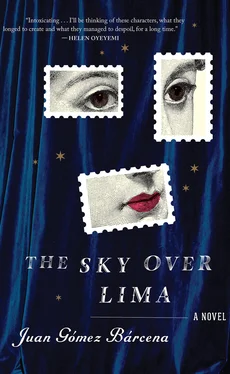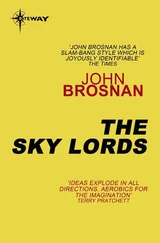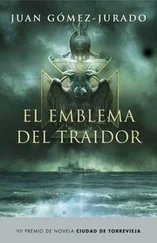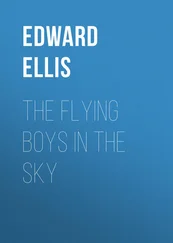Carlos is still looking at the spot where José was pointing. Among the dockworkers he can make out a few women. They are carrying leather pouches with crusts of bread for their husbands and sons, and earthenware jugs to quench the protesters’ thirst. A few chant slogans, raising their voices and their fragile fists to the sky. There is also one young woman with a parasol, elegantly dressed all in white. She looks like a piece of artwork amid the workers’ drab overalls. He is struck by her presence. It only accentuates the destitution around her, making it more incomprehensible, more painful, more genuine. She looks like a figure from a Sorolla painting who, wandering from one canvas to another, has ended up, whether by mistake or out of curiosity, in a humble scene from Courbet. Carlos thinks to himself: She could be Georgina . And for a moment it seems that she is about to turn her head — Georgina’s head — but at the last second she walks back into the crowd, and she and her parasol disappear.
José slaps himself on the shins, stands up.
“So now what? Shall we go? It’s obvious nothing much is going to happen here today.”
Carlos stands up too. But he doesn’t head back to the carriage — he moves in the opposite direction, toward where he saw the girl disappear.
“Hey, where are you going? That’s the wrong way.”
“I just want to take a look.”
“Don’t be ridiculous. Let’s get out of here. Can’t you see these idiots are ready to riot?”
But he follows Carlos. He’s not used to obeying and it takes him a while to make up his mind, but in the end he sighs and goes after him.
Carlos doesn’t really know what he hopes to find. It’s practically superstitious, his fantasy that the white parasol is hiding a face that can only belong to Georgina. Of course he can’t share such a notion with José. He can only do what he’s doing: fight his way through the crowd, elbowing and prodding the dark flesh of that animal, which seems to be rejecting them. Even though the strikers turn to look warily at the young men’s gold cufflinks and impeccable suits. Even though the slogans that a few minutes ago spoke of equality and justice in rather abstract terms are increasingly filled with invective, with mentions of spilled blood and dead bosses. Even though, seen up close, some women are distributing not crusts of bread or cups of wine but paving stones and iron bars and walking sticks and metal hooks and fireplace pokers. José’s voice is distorted by fear for the first time:
“Carlos, let’s get out of here, damn it,” he says, grabbing his friend’s arm.
Just then they hear a metallic banging rapidly approaching. A whistle. The crowd seems to respond to the noise, and José and Carlos are pulled along with it.
“Scabs! Scabs!”
It’s a convoy carrying goods to the wharf, and the crowd manages to stop it by hurling stones. It all happens so quickly that there’s no time to react. A few men clamber up on the locomotive and haul the engineer out of his cab. Carlos sees them drag him to the ground like a rag doll, but he doesn’t feel anything; it’s as if the images parading before him were happening in the pages of a book or being projected on a white sheet with a cinematograph. He is unaccustomed to violence, to the notion that ghastly things might suddenly take place before his eyes. Violence is something that’s always happened somewhere else, deep in the jungle, far from the clearing where he played with Román.
“Shit,” he hears José say above the tumult.
Suddenly a few shots are fired into the air. Or maybe not into the air. In the distance, perhaps, the girl. Is that her parasol, or a soldier’s white uniform? The noise of helmets falling upon the paving stones. More gunshots.
“The cavalry! The cavalry!”
Above the agitated faces, the bodies of the first horsemen come into view. There aloft, they might be at the bow of a ship that cuts through the swell of workers, who shout and scatter in all directions. He sees their sabers flash in the air. A man stabbed by a bayonet. Two dockworkers who bring down one of the horses by throwing rocks at its muzzle. José’s hand gripping his arm, bruising him, trying to drag him somewhere or perhaps trying desperately not to be dragged himself. Then he sees a horseman pass by him on his left, and at that moment he feels a sudden burning, as if a bolt of lightning had struck him in the face. The sensation is a sharp pang, one that isn’t preceded by any sound, that seems to have no origin or explanation. A cold bite that sears his temple and tumbles him to the ground.
As he falls he thinks he sees José turn to look at him. José hesitates a moment and then keeps running.
It’s possible that things don’t happen exactly like that. Maybe José does not see him fall. Perhaps he too is dragged along by the crowd and could have done nothing to help him anyway. It is possible that the person who looks at him and then runs off amid the uproar isn’t even José. But whatever the case, that’s how events will be etched in Carlos’s memory: him falling and José abandoning him to his fate.
For a moment he thinks he’s going to pass out. That’s what always happens in his favorite novels. The hero falls, wounded, and the world stops with him. Everything turns black, or white, or red, according to the author’s whims; reality disappears into a fog, and that fog does not clear until, hours or days later, the protagonist regains consciousness. But none of that happens.
He is able to feel, almost to count each of the blows he receives — twenty-seven — as the terrified mob tramples his body. He hears shouts, gunshots, horses’ hooves scraping the cobblestones. Voices cry out, pleading for help. Then something like silence. The taste of blood in his mouth. And finally some words he can’t understand, and the eyes of the soldier bending over him to check his pulse.
◊
The wounded are taken to the Guadalupe house of aid. The first to be treated is one Florencio Aliaga, who has a bullet lodged in his groin and is as gray as a corpse. Then the medics come back for the less seriously injured. Finally they even come to Carlos’s aid, though he has only a few contusions and a laceration on his face. He is embarrassed to be transported on a stretcher, since his single wound has already stopped bleeding. But he lets himself be carried, what choice does he have, while he looks around for José. He does not find him.
“My goodness, a gentleman like yourself — what were you doing among that rabble?” the aide asks as he helps Carlos remove his eighty- sol suit.
“I was waiting for some letters…”
And he doesn’t whimper once as he gets five stitches in his cheek. That’s one of the most important lessons he must credit his father for having taught him: not to cry out, not ever, even when they’re shredding the skin on your back with lashes.
He is afraid they will want to interrogate him, but nobody seems to be paying any attention to him. The doctors and nurses hurry from one cot to another, fold and unfold mosquito nets, push little carts loaded with scalpels and buckets of blood-tinged water. The aide also leaves him alone. Carlos struggles to his feet and then sits back down. The room is an immense nave with dozens of beds along either side, and everywhere are muffled moans and whimpers as the suture needle sews up wounds or the forceps dig around in them to pull out shrapnel. Two soldiers are posted by the door at the far end of the room, but they hold their rifles listlessly, as if they were laborers’ tools. They look like peasants. Perhaps, when they return home and remove their leathers and uniforms, they really are peasants. Now, though, away from their horses, their unsheathed swords, their combat formations, they also look like little boys.
Читать дальше












